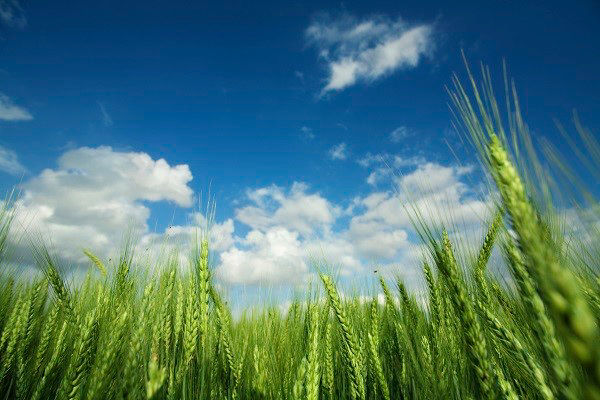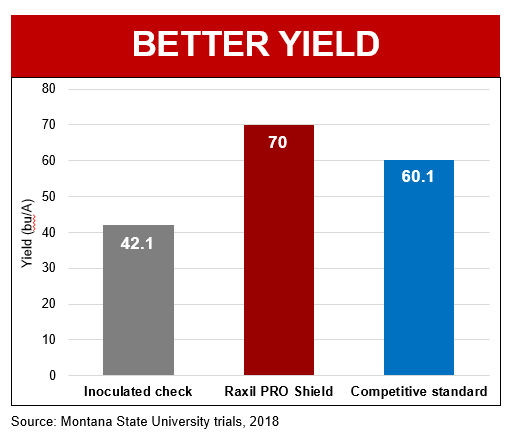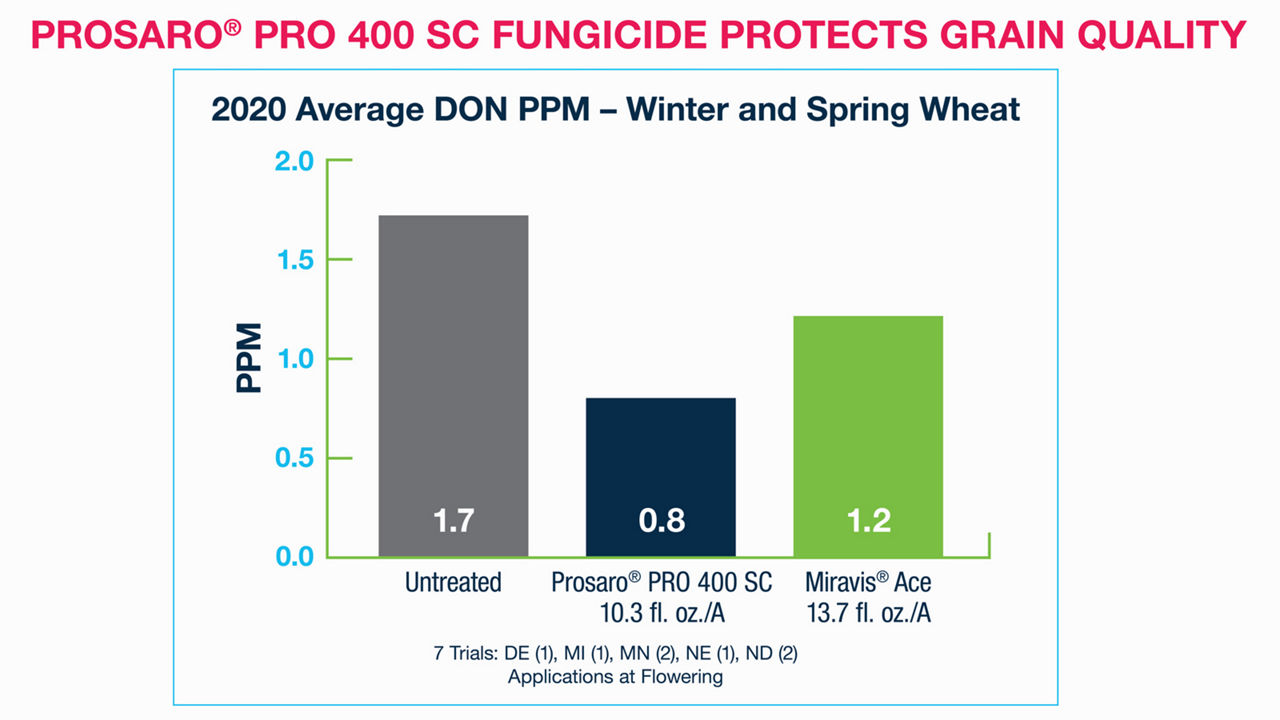Successful Disease Management in Wheat Includes Seed Treatment and Fungicide
August 22, 2023

Raxil® PRO Shield and Prosaro® PRO are a winning combination for higher grain quality, yield potential and profitability
Cereal diseases like rhizoctonia root rot, stripe rust and head scab are robbing wheat growers of yield and affecting the quality of their grain. The key to overcoming these threats is strategic disease planning.
Year-end success starts with preparing for diseases that occur frequently. The Bayer Cereal Experts recommend having a proactive disease management plan in place as you enter the growing season.
“Know what diseases are prevalent in your area and have a game plan in place for management,” says Charlie Hicks, Bayer Technical Service Representative and a Bayer Cereal Expert. “Once you see disease symptoms in your field, it can be difficult to get them under control.”
A Two-Pronged Approach to Disease Management
According to Hicks and other Bayer Cereal Experts, seed treatment and foliar fungicides are critical elements for season-long disease protection and better profitability at harvest.
This combination eliminates disease management uncertainty, and while growers still have to scout regularly for diseases, it can give them confidence in knowing they have protection from diseases brought on by any weather issues. Plus, the two complement one another for comprehensive control against harmful seedling, root, leaf and head diseases.
Seed Treatment Sets Up a Strong Start
A seed treatment like Raxil® PRO Shield enables the plant to get off to a healthy start. An all-in-one fungicide and insecticide seed treatment, Raxil PRO Shield has three modes of action (FRAC Groups 3 and 4; IRAC Group 4) for complete disease and pest protection. It guards against some of the toughest diseases in the Northern Plains such as root and crown rots, smut and bunt. Plus, Raxil PRO Shield protects the seedling against injury from pests like wireworms and aphids.

“Raxil PRO Shield is very active on all of the primary early-season cereal diseases. It helps your crop reach its full potential, even under the most adverse conditions,” Hicks says.
With less early-season stress, Raxil PRO Shield allows the plant to focus energy on increased growth and seed production for better root establishment, improved vigor and increased yield. 2018 wheat trials showed seeds treated with Raxil PRO Shield reported an average yield increase of 28 bu/A vs. untreated seeds and an average 10 bu/A advantage over the competitive standard.
In addition, using a seed treatment in spring wheat results in a more uniform staged crop, making the application timing decision easier for a foliar fungicide like Prosaro® PRO.
Fungicide Protects Throughout the Season
While the seed treatment allows the plant to get off to a less-stressful start, a fungicide application of Prosaro PRO offers protection from diseases that affect grain quality, yield and profitability. Prosaro PRO (FRAC Group 3) is a foliar and head disease fungicide with broad-spectrum control of diseases like scab, which causes mycotoxins that lead to elevated DON levels and reduced grain quality.

To learn more on how Prosaro PRO and Raxil PRO Shield work together to protect your cereal crop from diseases and pests, contact your local Bayer Cereal Expert or retailer, or visit CerealExperts.com for more information.
ALWAYS READ AND FOLLOW PESTICIDE LABEL DIRECTIONS. Not all products are registered for use in all states and may be subject to use restrictions. The distribution, sale, or use of an unregistered pesticide is a violation of federal and/or state law and is strictly prohibited. Check with your local dealer or representative for the product registration status in your state. Prosaro® and Raxil® are registered trademarks of Bayer Group. For additional product information call toll-free 1-866-99-BAYER (1-866-992-2937) or visit our website at www.BayerCropScience.us. Bayer CropScience LP, 800 North Lindbergh Boulevard, St. Louis, MO 63167. ©2023 Bayer Group. All rights reserved.